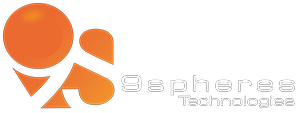
Cyber Security And The CIA Triad

The CIA triad is an information security model that provides a framework for protecting the confidentiality, integrity, and availability of data. This is not to be confused with The Central Intelligence Agency (CIA) in America, although some would argue it is just as important. The CIA triad is widely used as a standard for ensuring the security of information systems and has become an essential component of information security practices.
The 3 Main Goals Of Information Security
The term CIA triad stands for Confidentiality, Integrity, and Availability, which are the three goals of information security.
The triad meaning is that each of the three principles is equally important and must be considered in any information security strategy. The principles must be balanced and integrated to provide comprehensive protection for the data. For example, if confidentiality is given the highest priority, it could compromise the availability of the data, or if the emphasis is placed on availability, the integrity of the data may be at risk.
View Our Cyber Security Solutions
Protecting Data Integrity: The Role of the CIA Triad
What does the CIA triad protect? As mentioned the CIA triad is a model used to protect the confidentiality, integrity, and availability of information and data.
Let’s take a closer look at each aspect individually.
Confidentiality
Confidentiality is a crucial aspect of the CIA triad. Confidentiality refers to the protection of sensitive information from unauthorised access, ensuring that only those with the necessary permissions can access it. Integrity refers to the preservation of the accuracy and completeness of data, ensuring that it is not altered or deleted by unauthorised individuals.
Confidentiality is critical to many organisations in Australia, as it helps prevent sensitive information from falling into the wrong hands. This can include personal information, trade secrets, client information and other confidential data that, if leaked, could cause harm to the business. For example, the unauthorised release of sensitive client information from an accounting firm could lead to serious issues such as identity theft, monetary loss and severe reputational damage to the firm.
To maintain confidentiality, organisations must implement measures that prevent unauthorised access to sensitive information. This can include access controls, such as user authentication and authorisation, as well as encryption to protect data while it’s in transit or stored. Additionally, organisations should also have policies in place to govern who can access confidential information and what they can do with it. With a managed IT service provider, like 9spheres Technologies,these access permissions can be easily configured and controlled via a central cloud portal.
Another important aspect of confidentiality is data classification, which involves identifying sensitive information and determining who can access it and under what circumstances. This helps organisations understand the importance of different types of data and ensure that the right controls are in place to protect it.
Integrity
Integrity is the second leg of the CIA triad. It refers to the preservation of the accuracy and completeness of data, ensuring that it is not altered or deleted by unauthorised individuals.
Integrity is essential for organisations and individuals, as it ensures that the data they rely on is accurate and complete. This is particularly important for businesses, where a loss of data integrity could result in incorrect decisions, legal problems, and damage to reputation.
Returning to our accounting firm example, if a company’s financial records are altered, it could lead to incorrect financial statements and compliance issues, while the alteration of personal information could result in identity theft.
To maintain data integrity, organisations must implement measures to prevent unauthorised modification or deletion of data. This can include access controls, such as user authentication and authorisation, as well as checksum algorithms and other methods to detect unauthorised changes. Additionally, organisations should also have policies in place to govern who can modify data and what they can do with it.
Another important aspect of data integrity is data backup and recovery, which involves regularly backing up data and having a plan in place to restore it in the event of a disaster. This helps organisations ensure that their data is always accurate and complete, even in the event of a problem.
Availability
Availability refers to the ability of authorised users to access the data when they need it, ensuring that the information is readily available for use.
Availability is essential for organisations and individuals, as it ensures that critical information and systems are always accessible when needed. This is particularly important for businesses, where a lack of availability could result in lost revenue, decreased productivity, and damage to reputation. For example, in the case of the accounting firm, if their accounting software was unavailable, clients would not be able to upload, store or view their financial records and staff would not be able to get their work done.
As part of the CIA triad implementation, organisations must look at measures to ensure the reliability and accessibility of their systems and data. This can include the use of redundant systems and data backups, as well as disaster recovery plans to ensure that critical systems can be restored quickly in the event of an outage. Additionally, organisations should also regularly monitor their systems to detect and resolve issues before they become major problems.
Another important aspect of availability is capacity planning, which involves anticipating the future needs of an organisation and ensuring that its systems and data can meet those demands. This helps organisations avoid potential outages and ensure that their systems and data are always accessible when needed.
The CIA triad provides a framework for protecting these three key aspects of information security.
Download This Free Cyber Security Checklist
Secure Your Information
In conclusion, the CIA triad is a critical component of information security and should be considered in any business IT security plan. It provides a framework for evaluating the risk to data and determining the necessary measures to protect it.
At 9spheres Technologies we ensure that the principles of the CIA triad (confidentiality, integrity, and availability) are balanced and integrated to provide comprehensive protection for your data.
You can view our cyber security services below.






